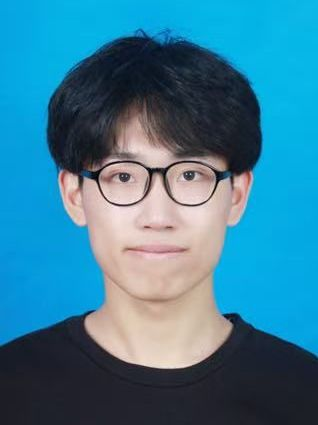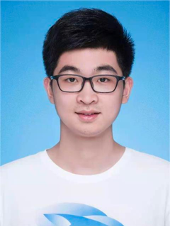Student Workshop
Hosts: Shujian Huang

Hosts: Shujian Huang
Affiliation: Nanjing University
Bio: Shujian Huang, Ph.D., is a Professor and Ph.D. supervisor at the School of Computer Science, Nanjing University. He currently serves as a Director of the Chinese Information Processing Society of China, a member of the Large Model Expert Committee, and Vice Director of the Machine Translation and Multilingual Processing Committee. His main research areas include machine translation and multilingual large models. He has published over 50 papers at top international conferences in natural language processing and artificial intelligence such as ACL, AAAI, IJCAI, NeurIPS, EMNLP, and NAACL. He received the EMNLP 2024 Outstanding Paper Award and the CCMT 2019 and CCMT 2023 Best Paper Awards. In 2019, he received the Outstanding Service Award from the Chinese Information Processing Society of China; in 2020, he received the Natural Language Processing and Chinese Computing Award - Young Rising Star Award from the China Computer Federation; and in 2022, he received the Qian Weichang Chinese Information Processing Award - Young Innovation Award. His co-supervised doctoral students have received honors including the Outstanding Doctoral Dissertation Award from the Chinese Association for Artificial Intelligence, the Outstanding Doctoral Dissertation Award from the Chinese Information Processing Society of China, and the Outstanding Doctoral Dissertation Award from the Jiangsu Artificial Intelligence Society.
Hosts: Weixiang Zhao

Hosts: Weixiang Zhao
Affiliation: Harbin Institute of Technology
Bio: Weixiang Zhao is a fourth-year direct Ph.D. student at the Social Computing and Information Retrieval (SCIR) Center, Harbin Institute of Technology, supervised by Professor Yanyan Zhao and Professor Bing Qin. His research interests include large model alignment and emotional dialogue systems. He has published more than ten papers as first author or co-first author in top domestic and international conferences and journals. His research achievements have been selected for ACL Oral & Panel.
Speaker 1: Chengwei Qin

Speaker: Chengwei Qin
Affiliation: The Hong Kong University of Science and Technology (Guangzhou)
Title: Research Path Selection and Career Considerations in the Era of Large Models
Abstract:
With the rapid development of large models across various fields, research paradigms and talent demands are quietly transforming. As a recently graduated researcher, I will combine my personal experience from doctoral studies to becoming a young faculty member at a university, sharing thoughts and insights on how to seize research opportunities, choose research directions, and make career decisions between academia and industry in the era of large models. I hope to provide some beneficial inspiration for students who are exploring research and career development.
Bio:
Chengwei Qin is an Assistant Professor in the Artificial Intelligence Thrust at The Hong Kong University of Science and Technology (Guangzhou) and an Affiliate Assistant Professor at The Hong Kong University of Science and Technology. He received his bachelor's degree from the Department of Computer Science at Tsinghua University and his Ph.D. from Nanyang Technological University. Chengwei Qin has long focused on research in large language models in the field of natural language processing. His main research areas include large model reasoning, agents, multimodality, and efficient learning of models. He has published over 30 papers at top international conferences such as ICLR, NeurIPS, ACL, and EMNLP, with over 2,200 citations according to Google Scholar. His research achievements have been widely recognized, including the EMNLP 2024 Outstanding Paper Award and the ACL 2023 Area Chair Award.
Speaker 2: Zhong Zhang

Speaker: Zhong Zhang
Affiliation: Tsinghua University
Title: Getting Started with Large Model Research and Personal Development Insights
Abstract:
In recent years, large model technology has developed rapidly, not only reshaping research paradigms in fields such as natural language processing but also changing the growth paths of young scholars. This presentation will combine my practical experience in the early stages of large model research to share key issues and phased achievements encountered in the process from "beginner" to "research participant," especially reflections and thoughts on research topic selection, resource coordination, capability accumulation, and collaboration models. I hope that through this sharing, I can help more students find their direction in the wave of large models and provide some reference.
Bio:
Zhong Zhang is a Postdoctoral Researcher at the Department of Computer Science, Tsinghua University, working with Associate Professor Zhiyuan Liu. He is selected for Tsinghua University's "Shuimu Scholar" program and leads the National Postdoctoral Foundation General Project and the National Funded Postdoctoral Researcher Program. His main research areas are large language models and agents. In recent years, he has published over 20 papers at international academic conferences and journals in artificial intelligence and natural language processing such as ICLR, ACL, and EMNLP, and serves as a program committee member or reviewer for multiple international conferences and journals.
Speaker 3: Zaixiang Zheng

Speaker: Zaixiang Zheng
Affiliation: ByteDance
Title: LLM, GenAI and AI for Science
Abstract:
Large language models and generative AI have achieved breakthrough progress in fields such as natural language processing in recent years, gradually becoming important tools for catalyzing scientific research and technological innovation. Meanwhile, generative AI is also beginning to accelerate toward complex scientific problems such as structural biology and protein design, promoting "AI for Science" as an important direction for cutting-edge interdisciplinary research. My doctoral research mainly focused on applications of large-scale generative modeling in language understanding, translation, and text generation. Therefore, the connection and combination of these technologies with scientific problems sparked my interest in AI for Science. In this sharing, I will introduce some explorations I have done in AI for Science at ByteDance, building multimodal generative protein foundation models around LLM, diffusion models, and preference optimization to assist protein modeling, understanding, and functional design.
Bio:
Zaixiang Zheng is a Senior Researcher at ByteDance Seed, ByteDance. He received his Ph.D. from the Natural Language Processing Group at Nanjing University and was a visiting scholar at the University of Edinburgh. His research areas cover large-scale generative AI and its applications in NLP and AI for Science, with recent focus on multimodal protein generative modeling and functional design. He has published over 20 papers at top international conferences such as ICML, NeurIPS, ICLR, and ACL, serves as an area chair for conferences including NeurIPS, ACL, EMNLP, and NAACL, received the Outstanding Doctoral Dissertation Award from the Chinese Information Processing Society of China, and his participated or supervised work received ACL 2021 and INLG 2022 Best Paper Awards. As a main contributor, he achieved first place in WMT 2021 German-English translation with a non-autoregressive system.
Speaker 4: Shihan Dou

Speaker: Shihan Dou
Affiliation: Fudan University
Title: How to Conduct Useful Research Adapted to Local Conditions in the Era of Large Models
Abstract:
In the era of large models, the research field is undergoing profound changes. Industry, with its strong cash flow, data, and computational advantages, is gradually dominating large model-related fields. Against this backdrop of uneven resource distribution, how should academia fully leverage its own advantages to conduct distinctive and innovative research work? This presentation will combine the speaker's learning and research experience in both enterprises and universities to explore how to conduct meaningful research adapted to different resource conditions. At the same time, the presentation will also discuss how to choose appropriate research directions in the era of large models and what constitutes more impactful and socially useful research.
Bio:
Shihan Dou is a Ph.D. student at the School of Computing and Intelligent Innovation, Fudan University, supervised by Associate Researcher Tao Gui, Professor Qi Zhang, and Professor Xuanjing Huang. His main research area is post-training of large language models, with a focus on using reinforcement learning to improve the reasoning capabilities of large models and achieve alignment with humans. He has published over ten papers as first author or co-first author in top domestic and international conferences and journals, with over 2,500 citations on Google Scholar. His research achievements have received the NeurIPS 2023 Workshop Best Paper Award.
Speaker 5: Qiguang Chen

Speaker: Qiguang Chen
Affiliation: Harbin Institute of Technology
Title: Sharing Experience in Scientific Research Visualization
Abstract:
As the research field increasingly relies on data analysis and result presentation, how researchers effectively create visualizations has become an important aspect of enhancing the expression of research outcomes. This presentation focuses on scientific research visualization practices, sharing how to clearly and effectively present research results through charts and images. The content covers commonly used visualization tools, design principles, and graphic selection for different research scenarios, and explores the integration of visualization with paper writing, hoping to help improve scientific expression and impact.
Bio:
Qiguang Chen is a Ph.D. student at the Social Computing and Information Retrieval (SCIR) Center, Harbin Institute of Technology, supervised by Professor Wanxiang Che and Professor Libo Qin. His main research area is complex reasoning in large models. He has published over 10 papers as first author or co-first author at international conferences such as NeurIPS, ACL, and AAAI, with over 800 citations on Google Scholar. His research achievements have been selected for EMNLP MMNLU2022 workshop best paper, NeurIPS Oral, ACL Oral, and others.
Speaker 6: Shuofei Qiao

Speaker: Shuofei Qiao
Affiliation: Zhejiang University
Title: Brief Discussion on How to Conduct Distinctive Research in the Era of Large Models: Taking Large Model Agents as an Example
Abstract:
In the era of large models, the cutting-edge research areas in natural language processing are gradually narrowing. How to find one's own distinctive research direction among a large number of similar papers is key. This presenter takes the currently popular direction of large model agents as an example, starting from personal experience, to briefly discuss how to conduct distinctive research in the era of large models.
Bio:
Shuofei Qiao is a Ph.D. student at the School of Computer Science and Technology, Zhejiang University, supervised by Professor Huajun Chen and Professor Ningyu Zhang. His main research areas are natural language processing and large models, focusing on knowledge-enhanced large model agent research and applications. He has published multiple research results as first author at top international conferences such as ICLR, NeurIPS, ACL, and NAACL.